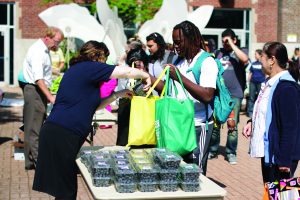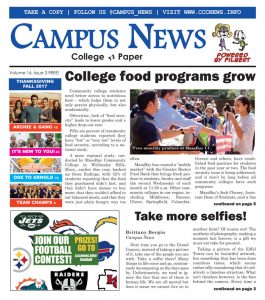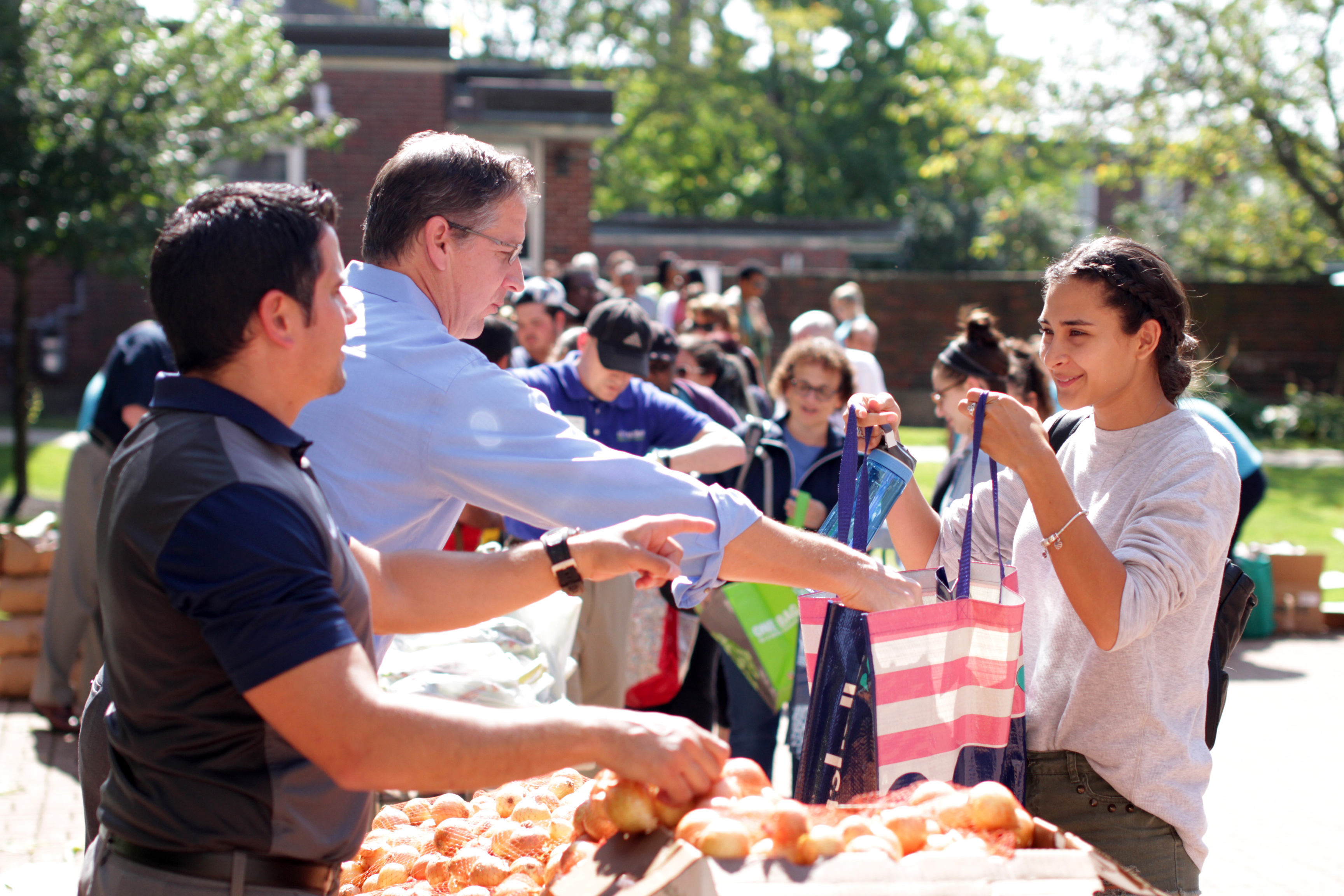By Darren Johnson
Campus News
Community college students need better access to nutritious food – which helps them to not only persist physically, but also academically.
Otherwise, lack of “food security” leads to lower grades and a higher drop-out rate.
Fifty-six percent of community college students reported they have “low” or “very low” levels of food security, according to a national study.

A more regional study, conducted by MassBay Community College in Wellsesley Hills, Mass., earlier this year, backed up those findings, with 52% of students reporting that the food they purchased didn’t last, and they didn’t have money to buy more; that they couldn’t afford to eat balanced meals, and that they were just plain hungry way too often.
MassBay has created a “mobile market” with the Greater Boston Food Bank that brings fresh produce to students, faculty and staff the second Wednesday of each month at 11:30 a.m. Other community colleges in our region, including Middlesex, Nassau, Ulster, Springfield, Columbia-Greene and others, have established food pantries for students in the past year or two. The food security issue is being addressed, and it won’t be long before all community colleges have such programs.
MassBay’s Josh Cheney, Assistant Dean of Students, said a line forms for its monthly mobile market before it opens. Some professors let their classes break to participate.
“We hope to bring awareness to the topic of food security and take away the shame many students who need this help feel,” he said, noting that faculty and staff also are encouraged to use the market. “Eighty percent of our participants are students, but if they see faculty and staff members also there, it helps take away that stigma.”

The market usually has about nine different kinds of fruits and vegetables – some staples, like potatoes and onions, and some seasonal fare like strawberries and apples – and participants can bring recyclable bags to fill up. Also provided are instructions on how to prepare the food.
“We don’t want anyone to feel sad or ashamed so we keep the event as light as possible,” added MassBay spokesperson Liz Cooper. “We play music and have provided hot chocolate.”
Other campuses have been collecting non-perishables for distribution. Middlesex has food pantries at both its Bedford and Lowell, Mass., campuses. MCC President James Mabry said in a statement: “Like growing numbers of college students across the country, many Middlesex students are struggling to make ends meet while working and taking classes. For some, making a trade-off between food and other essential living expenses is a reality.
“Helping to alleviate the challenges associated with food insecurity and hunger will enable our students to remain in school, be successful, and become engaged community members.”
To help the Middlesex effort contact denks@middlesex. mass.edu.
Nassau Community College on Long Island, N.Y., has a busy pantry dubbed The Nest. Coordinator Sharon Masrour said that this current semester has seen a real surge in guest usage. The college pantry has had 2500 visits in the past two years. They feed whole families, distributing over 1000 pounds of food each week.
This Thanksgiving, The Nest will give away at least 40 turkeys with “all the trimmings.” They also are looking for donations. Visit nestncc.weebly.com.
“We want students to be healthy and have healthy food available to them,” MassBay’s Cheney said. “When students aren’t hungry, they can focus better on academics. And that leads to better attendance and a higher GPA. … Not having meals is a stressor.”
To learn more about the MassBay effort, contact kgraska@massbay.edu.
He added: “Students’ health and well-being and academic success is a positive side effect – and another positive side effect is that we’re creating a community on campus around the mobile market. It has started a healthy conversation and has been a springboard for other positive conversations on campus.”







Facebook Comments